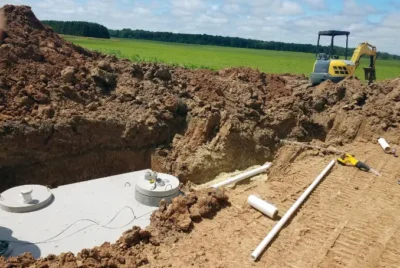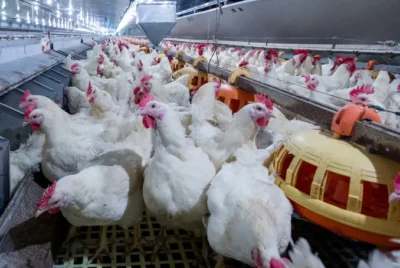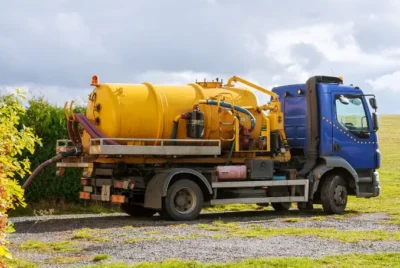Septic Tank Alarm System: What Those Sounds Mean for Poultry Owners
For poultry owners, maintaining a healthy environment is critical not only for the welfare of your birds but also for the overall productivity of your operations. An integral part of this environment is the septic tank system, which manages waste efficiently and sustainably.
However, when the septic tank alarm system starts making noises, it’s essential to understand what these sounds signify and how to respond appropriately.
How Septic Tank Alarms Work?
When you, as a farmer or poultry owner, have a septic system on your property, it’s essential to understand how your septic tank alarm works to prevent any potential environmental hazards or disruptions to your operations.
Essentially, the septic tank alarm is a warning system designed to alert you when the water level in the tank is higher than normal, indicating potential overflows or system malfunctions.
The alarm, usually located in a conspicuous place near your septic system or inside your home, consists of a float switch. This switch is activated when the water level rises to a critical point, triggering an audible and sometimes visual signal.
As a farmer or poultry owner, prompt attention to this alarm allows you to address the issue quickly, avoiding overflow that could contaminate your land, affect your operations, and pose a risk to your livestock or crops. It’s a safeguard that helps you maintain a healthy environment on your farm.
Common Causes for Septic Tank Alarms
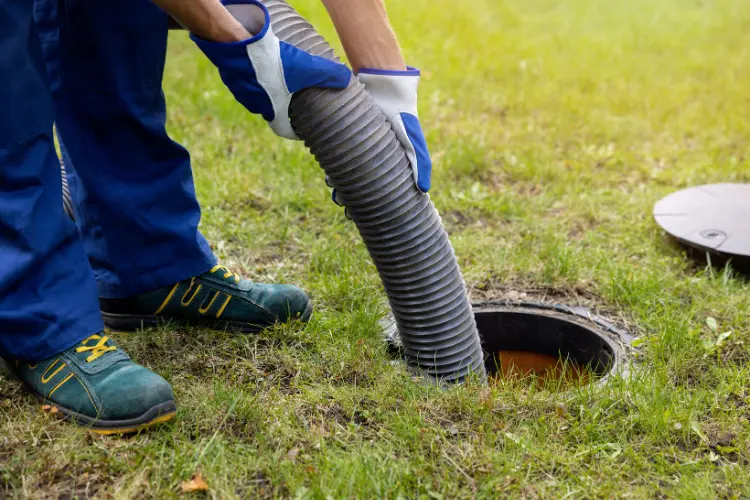
For poultry owners, managing a septic system efficiently is critical to ensure the health of your chickens and the overall operation of your farm. When your septic tank alarm goes off, it’s a signal that requires immediate attention to prevent potential environmental hazards or disruptions to your daily operations.
High Water Usage
In a poultry farming operation, water usage can be significant due to the need for cleaning, chicken watering systems, and processing activities. Unusually high water usage can quickly fill the septic tank, leading to elevated water levels and triggering the alarm.
Blocked Drainfield
The drain field is crucial for processing the wastewater from your septic tank. However, in a poultry farm setting, the risk of blockage is higher due to the potential for contaminants or solids to escape from the tank. If the drainfield is blocked or fails, it can cause the tank to back up and set off the alarm.
Pump Failure
Your septic system might use a pump to move effluent to the drainfield. This pump can fail due to electrical issues, a mechanical breakdown, or clogging from materials in the effluent. Pump failure means the effluent isn’t being properly moved out of the tank, causing water levels to rise and the alarm to sound.
Heavy Rainfall or Snowmelt
Poultry farms, often located in rural or semi-rural areas, can be particularly vulnerable to the impacts of rapid snowmelt or heavy rainfall, which can increase the water level in the septic tank beyond its capacity, leading to the activation of the alarm.
Float Switch Problems
The float switch is an important component of the alarm system, designed to activate the alarm when water levels reach a certain height. If this switch becomes stuck or malfunctions, it could falsely trigger the alarm or fail to trigger it when needed.
Types of Septic Tank Sounds and Their Meanings
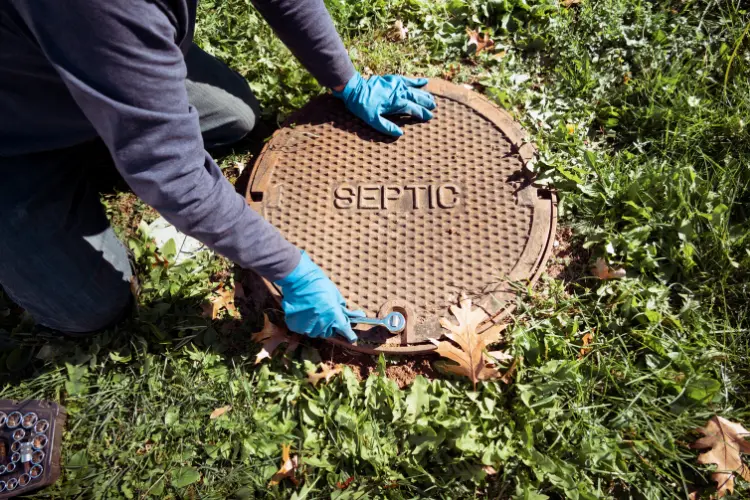
Understanding the types of sounds your septic tank emits and their meanings is crucial for maintaining a healthy septic system and preventing potential issues.
Humming or Whirring from the Pump
This sound is normal for aerobic septic systems that have an air pump. It indicates the air pump is functioning as it should, introducing oxygen into the system to aid in the breakdown of waste.
However, if you have an effluent pump system and notice a continuous low noise, it’s simply the pump working. But if the sound changes pitch or becomes irregular, it might signal a problem.
Banging or Screeching from the Pump
These sounds are abnormal and often indicate a malfunction within the pump mechanism. Banging could suggest a problem with the pump’s components while screeching might be due to bearings or other mechanical parts failing. Immediate attention is required to prevent a system failure.
Gurgling Sounds
Hearing gurgling from your drains or near the septic tank itself often points to a blockage or restriction in the system’s flow. This could be within the main sewer line from your house to the tank or within the tank’s outlet pipe. It’s a sign that wastewater is struggling to move through the system properly.
Beeping or Buzzing (Alarms)
A loud beeping or buzzing sound is usually from the septic alarm system, indicating that the water level in the tank is too high or there has been a power failure affecting the pump.
While it might not always mean a serious issue—such as temporary high water levels due to excessive rain—it’s a signal to check the system. I advise professional inspection if the problem persists after checking for power issues and giving the system time to stabilize.
Trickling Water
If you notice a continuous trickling sound, it might indicate a leak within the system or that water is continuously running into the tank from a household leak. I suggest investigating this to ensure that the system isn’t overloaded unnecessarily.
Read also: Types of Septic Systems: Choosing the Best Option for Your Property
Check Your Septic Tank Now
If you’re a poultry owner and notice any disturbing noises from your septic tank alarm system, or worse, if you’re experiencing problems with your septic tank, it’s crucial to take action immediately.
Before the situation worsens, there’s a simple solution that could help: the Odd Flushing Trick. This newly discovered method promises to address many common septic tank issues effectively. However, to determine if this trick is suitable for your septic system, we invite you to answer a few simple questions.
This step ensures that the solution we offer can be tailored to your needs, providing a customized approach to maintaining your septic system’s health. Don’t wait for minor issues to become major—check out this Odd Flushing Trick today and see if it’s the right fit for your farm’s septic system needs.


